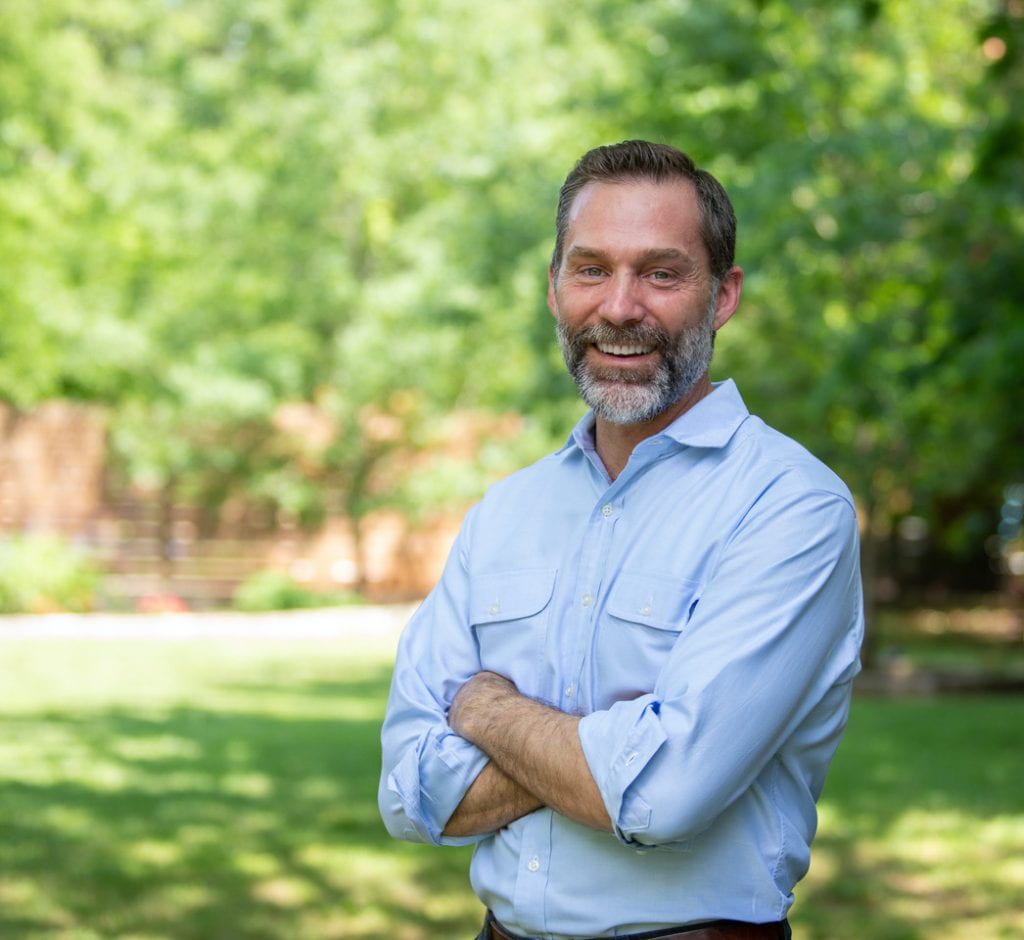In this issue’s Q&A, Texas+Water Editor-in-Chief, Dr. Todd Votteler, invited candidates for Texas Land Commissioner, Republican Dr. Dawn Buckingham and Democrat Jay Kleberg, to share their thoughts on Texas water issues through a candidate questionnaire.
Kleberg is a life-long conservationist, environmental advocate, entrepreneur, and candidate for Land Commissioner because he understands that the decisions we make today in managing our natural resources impact the future success of this great state. He is a sixth-generation Texan who was raised on the King Ranch with love and respect for the land and honors his family’s long history of innovation and science-driven land management.
As the former Associate Director of the Texas Parks and Wildlife Foundation, where he raised more than $100 million to conserve Texas Landscapes and lead the largest land acquisition for conservation purposes in Texas history, Kleberg is the only candidate in this runoff with the experience necessary to protect and preserve the Texas that we all know and love.
As the next Texas Land Commissioner, he will ensure that billions of dollars in federal disaster relief funds are invested equitably in future-proofing communities, rebuilding people’s lives, and creating high-quality jobs. He would manage state lands with the next one hundred years––not the next election cycle––in mind and commit to sending revenue from public lands to fund our children’s education. Kleberg plans to honor our Texas veterans’ sacrifice for our freedoms by making the Texas General Land Office land and home loan programs more accessible and by providing long-term care that reflects our respect for their service.
Kleberg envisions this office as the state’s top environmental post, responsible for not just stewarding natural resources to the benefit of public education but creating a better world for the very children we are educating.
What do you consider to be the biggest future challenge facing Texas with regard to water?
The biggest challenge facing Texas with regard to water is how to plan to ensure we have sustainable, efficient access to water for the future. The state of Texas is expected to grow substantially in the future, thus we need to ensure our water supply is able to meet future demands. The 2017 State Water Plan developed by the Texas Water Development Board states that in order to meet the demands for water by 2070, nearly nine million acre-feet of additional water supplies would be needed.
During your career what is the most significant thing you have done regarding water?
Prior to my candidacy for Texas Land Commissioner, I had the honor of serving as chair of the Texas Water Trade, an organization that focuses on water conservation. As chair, I worked to provide abundant and clean water for urban environments by allocating for net zero development, in agricultural communities by identifying long-term solutions to periodic droughts, and in rural communities by providing clean water in water-insecure areas.
In addition, I grew up on the coast and acknowledge the importance of coastal resilience. As a board member of Flatsworthy, I have promoted the protection of our estuaries and bays by recreational and commercial users. Finally, I produced a film, Deep in the Heart: A Texas Wildlife Story, that showcases the importance of water conservation from the High Plains and Trans-Pecos to our bays, estuaries, and the Gulf of Mexico.
Is there something you think the Texas General Land Office should, or should not be doing regarding water?
There are three key strategies the Texas General Land Office should use to address present and future water challenges.
First, the General Land Office can require that all produced water on public lands be reused and recycled, providing a crucial reduction in water waste and expanding available water resources for irrigation and greywater.
Second, the General Land Office should be a key proponent of establishing statewide water pipeline infrastructure. This can be accomplished through a multi-pronged approach that includes:
- advocacy to the general public encouraging public adoption of a project that will require acquisition of easements on private land,
- advocacy to the Legislature encouraging action to provide funding, eminent domain authority, and additional support to the project,
- and a proactive approach to approving easements and leases for such a project across public lands in Texas.
Finally, the General Land Office can serve as an active partner to the emerging desalination industry, helping to establish municipal seawater desalination plants to increase the water supply with a clear focus on environmental and ecological sustainability.
Are there any other thoughts regarding water that you would like to share with us?
Proper land management is critical to the health of our groundwater and surface water, and determining how we manage population growth with a higher frequency and intensity of drought and flood, is the key to Texas’ future. We must consider coastal protection, flood mitigation, partnerships in rural and urban communities, and promoting the use of conservation and technology as we pursue balance between the economy and the environment.
Join Our Mailing List
Subscribe to Texas+Water and stay updated on the spectrum of Texas water issues including science, policy, and law.

